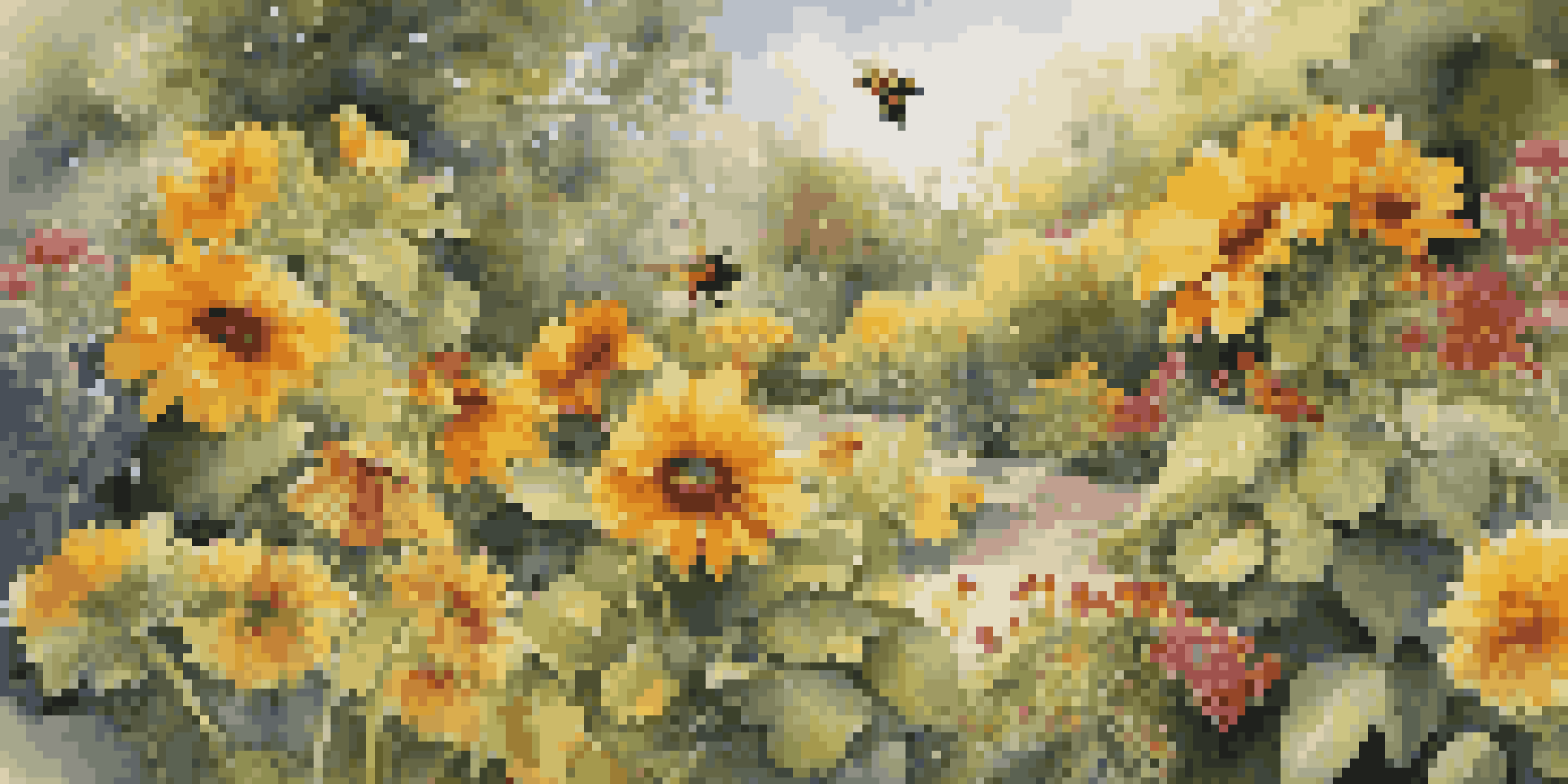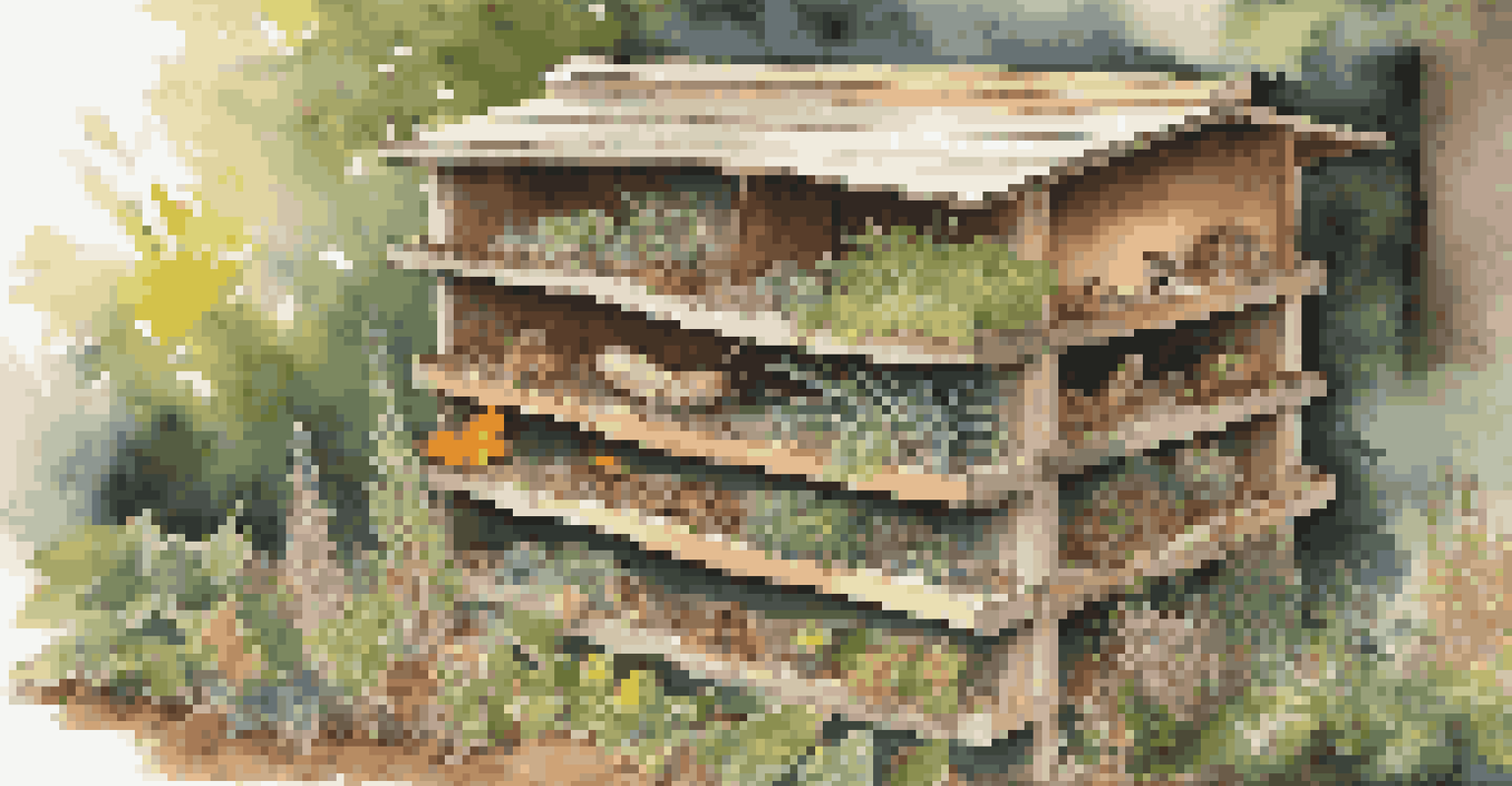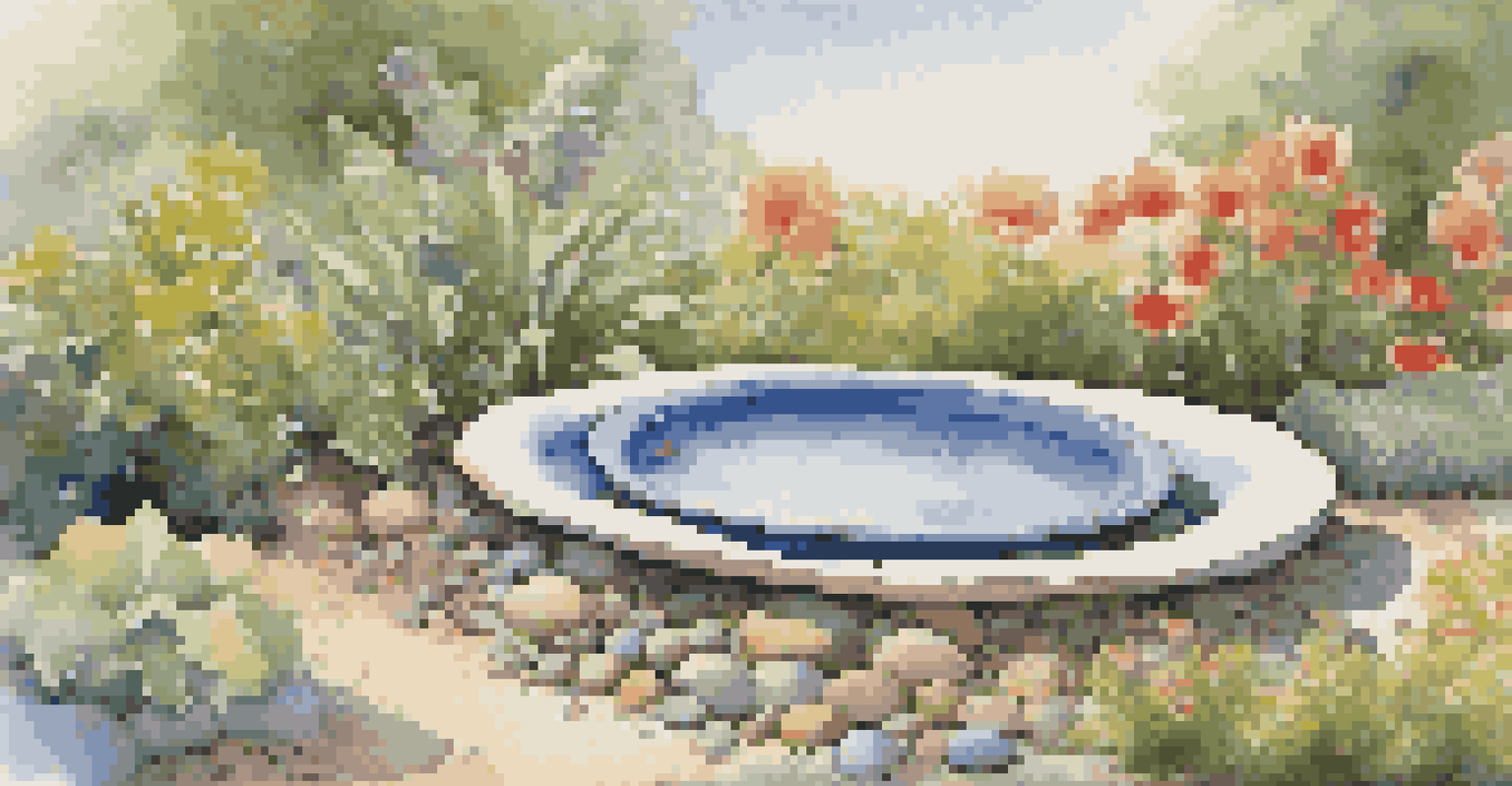Creating a Habitat for Beneficial Insects in Your Garden

Understanding Beneficial Insects and Their Importance
Beneficial insects, like ladybugs and bees, play a crucial role in the ecosystem. They help with pollination and pest control, making your garden healthier and more productive. By attracting these helpful creatures, you can reduce the need for chemical pesticides and promote a balanced environment.
The ultimate goal of farming is not the growing of crops, but the cultivation and perfection of human beings.
Imagine your garden as a team where every player has a crucial role. Just like a soccer team needs forwards and defenders, your garden thrives with a mix of plants and insects. This diversity can lead to a thriving ecosystem that supports plant growth and biodiversity.
Incorporating beneficial insects into your garden isn’t just good for the plants; it's a step toward sustainable gardening. When you create a welcoming environment for these insects, you're investing in the health of your garden for years to come.
Choosing the Right Plants for Your Garden
To attract beneficial insects, it's essential to choose the right plants. Native flowers, herbs, and flowering vegetables provide the nectar and pollen that many beneficial insects seek. Think of plants like marigolds and sunflowers, which can act like magnets for these helpful visitors.

Diversity is key in plant selection. Instead of planting a single type of flower, consider creating clusters of different species. This approach not only enhances the beauty of your garden but also ensures a steady food source for various beneficial insects throughout the growing season.
Attract Beneficial Insects
Choosing the right native plants and avoiding chemicals can create a welcoming environment for beneficial insects in your garden.
Additionally, avoid using plants that have been treated with harsh chemicals. Many beneficial insects are sensitive to pesticides, and using organic or natural gardening methods can help keep your garden a safe haven for them.
Providing Shelter for Beneficial Insects
Just like we need a roof over our heads, beneficial insects require shelter to thrive. This can be as simple as leaving a few patches of bare soil or creating small piles of rocks and twigs. These spots offer safe places for insects to rest and hide from predators.
Nature does not hurry, yet everything is accomplished.
You can also install insect hotels, which are structures designed to provide nesting sites for various insect species. Think of them as tiny apartments for insects, offering rooms for solitary bees, ladybugs, and lacewings. Building one can be a fun DIY project that enhances your garden's appeal.
Additionally, consider leaving some plant debris in your garden during the winter months. This debris not only provides shelter but also serves as a food source for beneficial insects, helping them survive until spring arrives.
Water Sources: A Necessity for Beneficial Insects
Water is vital for all living beings, including beneficial insects. Creating small water sources in your garden, like shallow dishes filled with pebbles and water, can provide a much-needed hydration spot. These shallow dishes ensure that insects can drink without the risk of drowning.
Another great option is to incorporate a small birdbath or fountain. Not only do these features attract birds, but they also create a lively environment for beneficial insects. Just remember to change the water regularly to keep it fresh and free of mosquitoes.
Provide Shelter and Water
Creating shelters like insect hotels and providing shallow water sources are essential for the survival and health of beneficial insects.
By adding water sources, you're not just catering to insects; you're enhancing your garden's ecosystem. This small addition can significantly improve the health and diversity of the beneficial insect population.
Avoiding Pesticides and Chemical Fertilizers
One of the biggest threats to beneficial insects is the use of pesticides and chemical fertilizers. While these products may seem like a quick fix for pest problems, they can harm the very insects you’re trying to attract. Instead, consider natural pest control methods, such as introducing predatory insects or using organic sprays.
It's important to remember that a few pests are natural in a garden environment. Like a balancing act, having some pests can draw beneficial insects to your garden, creating a natural equilibrium. By avoiding harmful chemicals, you allow nature to do its job.
Opting for organic gardening practices not only protects beneficial insects but also promotes healthier soil and plants. This shift can lead to a more sustainable garden that flourishes year after year.
Creating a Diverse Ecosystem with Companion Planting
Companion planting is a fantastic way to enhance biodiversity and attract beneficial insects. By planting certain plants together, you can create a thriving ecosystem that supports various insect populations. For example, pairing basil with tomatoes can repel harmful pests while attracting pollinators.
Think of companion planting as a friendly neighborhood where plants support each other. This strategy can help maximize your garden's potential, ensuring that each plant contributes to the overall health of the ecosystem. It’s all about finding the right combinations.
Embrace Organic Practices
Avoiding pesticides and adopting organic gardening methods not only protects beneficial insects but also promotes a sustainable garden ecosystem.
Additionally, companion planting can improve soil health and deter pests naturally. By fostering relationships between different plants, you create a garden that works in harmony, much like a well-rehearsed orchestra.
Monitoring and Maintaining Your Insect Habitat
Creating a habitat for beneficial insects is just the beginning; maintenance is key to success. Regularly monitoring your garden allows you to observe which insects are visiting and how the ecosystem is functioning. This insight can help you adjust your practices to further support these helpful creatures.
Keep an eye out for signs of imbalance, like pest overpopulation or declining beneficial insect numbers. By being proactive, you can make informed decisions that promote a healthy ecosystem. Small changes, like adjusting watering habits or adding new plants, can have a significant impact.

Remember, gardening is a journey, not a destination. Embrace the learning process and enjoy watching your garden evolve. As you nurture your insect habitat, you'll find that your garden becomes more vibrant and alive with activity.